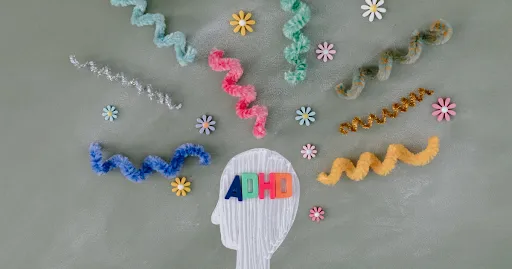
Best Natural and Medical Ways to Manage ADHD Effectively
The Best Natural and Medical Treatments for ADHD Management
Blog Summary:
Learn effective ADHD management strategies at Embrace Behavioral Health in Vernon Hills, IL. Explore natural and medical treatments for better focus. Visit Embrace Behavioral Health to find the right plan for you!
Struggling with ADHD can feel overwhelming. The constant battle with focus, impulsivity, and hyperactivity affects both children and adults, impacting their daily lives. Left unmanaged, ADHD can interfere with school, work, and relationships. But there’s good news—effective treatments exist. At Embrace Behavioral Health in Vernon Hills, IL, we offer guidance on the best ADHD management strategies, combining natural and medical approaches for improved focus and well-being. Whether you prefer lifestyle changes or medication, this guide will help you find the right balance.
Understanding ADHD
ADHD (Attention-Deficit/Hyperactivity Disorder) is a neurodevelopmental condition that affects focus, impulse control, and behavior. It is typically diagnosed in childhood but can persist into adulthood. ADHD is categorized into three main types:
Inattentive Type: difficulty focusing, frequent forgetfulness, and trouble following instructions.
Hyperactive-Impulsive Type: Restlessness, impulsive decision-making, and excessive talking or movement.
Combined Type: A mix of inattentive and hyperactive-impulsive symptoms.
If left untreated, ADHD can impact academic success, work performance, and relationships. However, with the right treatment, individuals can manage their symptoms and lead fulfilling lives.
Natural Treatments for ADHD
Many individuals seek natural ADHD treatments before considering medication. While no single remedy works for everyone, some approaches have shown promising results.
1. Diet and Nutrition for ADHD
What you eat can influence brain function and behavior. Studies suggest that certain foods can help improve ADHD symptoms, while others may worsen them.
Foods That May Help:
Omega-3 Fatty Acids: Found in fish, walnuts, and flaxseeds, omega-3s support brain function and may improve attention.
Protein-rich foods: Eggs, lean meats, beans, and nuts help regulate blood sugar levels and improve focus.
Iron and Zinc: These minerals, found in spinach, red meat, and pumpkin seeds, are essential for dopamine regulation, which plays a role in attention and mood.
Foods to Avoid:
Artificial Colors & Preservatives: Found in processed foods, these additives can worsen hyperactivity in some individuals.
Excessive Sugar: High sugar intake may lead to energy crashes and increased impulsivity.
Caffeine: While some adults use caffeine to improve focus, it can cause jitteriness and worsen hyperactivity in children.
2. Physical Activity and ADHD
Exercise is a natural way to boost dopamine, norepinephrine, and serotonin levels—neurotransmitters that help with attention and mood regulation.
Effective ADHD-friendly exercises include:
Aerobic Activities (running, biking, swimming): Help improve focus and reduce impulsivity.
Martial arts & dance: enhance discipline, concentration, and coordination.
Yoga & Meditation Promote self-regulation, emotional control, and relaxation.
A daily exercise routine can lead to long-term improvements in attention and behavior.
3. Behavioral Strategies and Coaching
Behavioral interventions are essential in helping individuals develop coping strategies.
Cognitive Behavioral Therapy (CBT): CBT helps individuals identify negative thought patterns and develop self-regulation skills.
Parent Training & Support: Equips parents with strategies to manage their child’s behavior effectively.
Time management techniques: Using planners, timers, and task breakdowns can improve organization and productivity.
4. Herbal and Supplement-Based Approaches
Some natural supplements have shown potential benefits for ADHD. However, consult a healthcare provider before trying them.
Zinc, Iron, and Magnesium: These may help with hyperactivity and attention regulation.
Ginkgo biloba & ginseng have been studied for their potential to improve memory and focus.
Melatonin can help regulate sleep patterns in individuals struggling with ADHD-related insomnia.
Medical Treatments for ADHD
For individuals with moderate to severe symptoms, medication can be a crucial part of ADHD management. Medical treatment should be carefully monitored by a professional.
1. Stimulant Medications
Stimulants are the most commonly prescribed medications for ADHD. They work by increasing dopamine and norepinephrine levels in the brain, improving focus and impulse control.
Common stimulant medications include:
Methylphenidate (Ritalin, Concerta): Helps enhance focus and reduce impulsivity.
Amphetamines (Adderall, Vyvanse) work similarly by stimulating neurotransmitter activity.
Studies show that stimulant medications can significantly reduce ADHD symptoms, but they may have side effects such as insomnia, decreased appetite, or increased heart rate.
2. Non-Stimulant Medications
For individuals who do not respond well to stimulants, non-stimulant options are available.
Atomoxetine (Strattera): Works by increasing norepinephrine levels and may take a few weeks to show full effects.
Guanfacine & Clonidine Originally used for high blood pressure, these medications help with impulse control and hyperactivity.
3. Medication Management and Monitoring
At Embrace Behavioral Health, we emphasize personalized medication management to ensure each patient receives the right treatment plan. Medication should always be monitored for effectiveness and side effects.
Key considerations for medication management:
Regular checkups with a healthcare provider.
Adjusting dosages based on response and side effects.
Combining medication with behavioral therapy for the best outcomes.
Combining Natural and Medical Approaches
For many individuals, the most effective ADHD treatment involves a multimodal approach—combining both medical and natural strategies.
Example of an integrated treatment plan:
Eating a nutritious, ADHD-friendly diet.
Engaging in regular exercise and mindfulness activities.
Using behavioral therapy to develop coping mechanisms.
Taking prescribed medications when necessary under medical supervision.
This holistic approach ensures long-term symptom management while improving overall well-being.
ADHD Treatment at Embrace Behavioral Health
Located in Vernon Hills, IL, Embrace Behavioral Health is committed to helping individuals with ADHD find the right management strategies. We proudly serve Libertyville, IL, Mundelein, IL, and Lake County, IL.
Our services include:
Comprehensive ADHD Assessments
Neurocognitive Testing
Personalized Treatment Planning
Medication Management
Whether you’re seeking natural ADHD treatments or medication-based solutions, our team is here to guide you.
Request More Information
Managing ADHD requires the right combination of strategies, and Embrace Behavioral Health is here to support you. If you or a loved one is struggling with ADHD, don’t wait—explore your options today.
Visit our website at Embrace Behavioral Health and click "Request More Information" to start your journey toward effective ADHD management.
